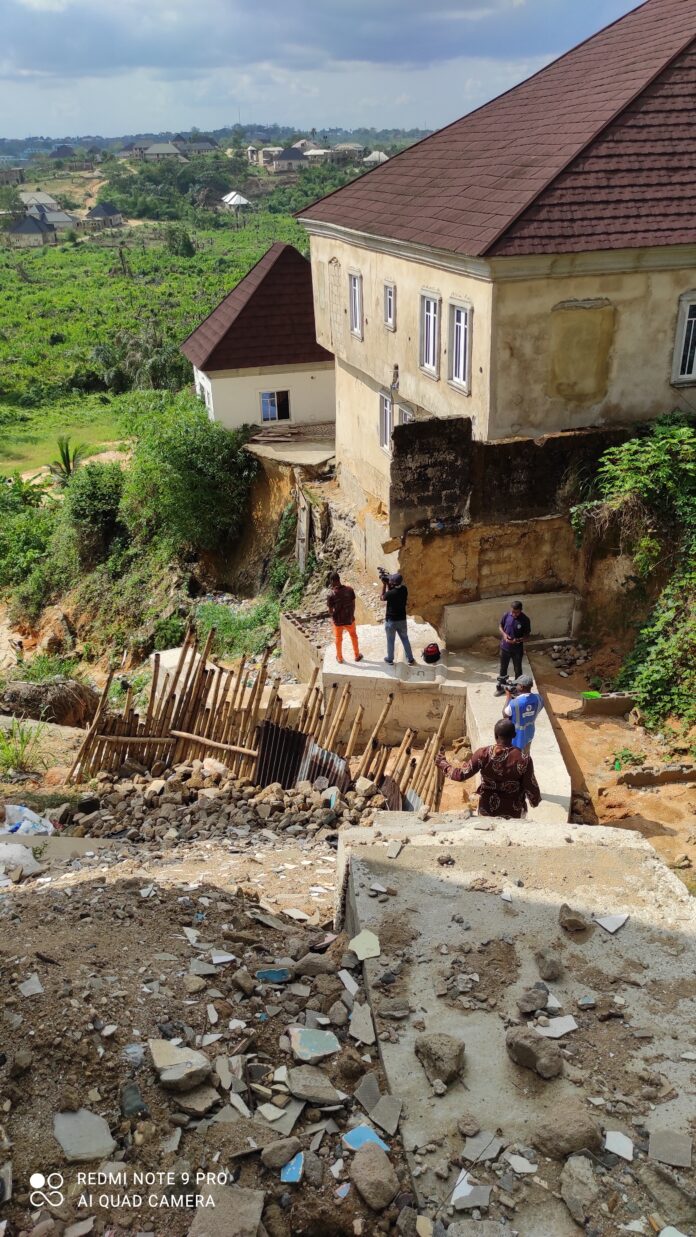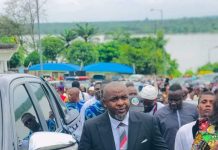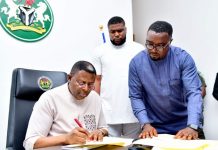Ikot Enebong, Akai Efa, Enima Omin, Goodluck Jonathan Bypass all in Calabar Municipality, Ekeya Gully Community in Calabar South LGA and Agiga Gully Community in Ogoja LGA, all gully erosion communities in Cross River have charged the World Bank to redeem her image by rescinding the recent decision of its Nigeria Office to stop bioremediation works at the livelihood threatening gully erosion sites in their communities. On Friday the leadership of the 6 named gully erosion communities addressed a press conference and site tour of the affected areas of the community in the state.
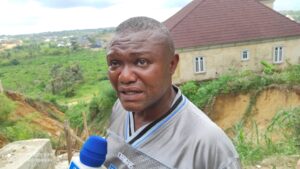
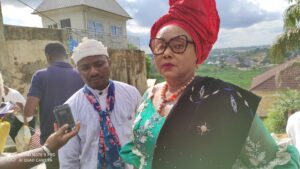
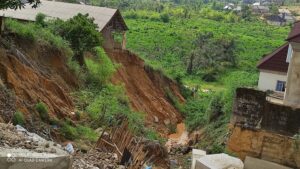
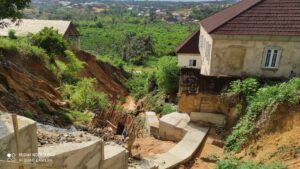
According to the Her Royal Highness Henrietta Efa Akpera, the Village Head of Akai Efa (Gully Erosion Community), who was the spokeswoman for the other traditional rulers of the affected communities, the World Bank through the Nigeria Erosion and Watershed Management Project (NEWMAP), had in 2017 caused a team of engineers to visit the six gully erosion communities, who gathered information, and produced designs for civil work. By January 2021, the designs were approved by the World Bank and there was assurance that construction work would commence soon. However, while in hope, Akpera disclosed that the World Bank decided against coming for the execution of the bioremediation works for the affected six communities. It is on this premise that the leadership of these six gully erosion communities are unanimously asking the World Bank to reconsider its decision to retrieve the cash meant for remediation works in Cross River to other states with similar challenges.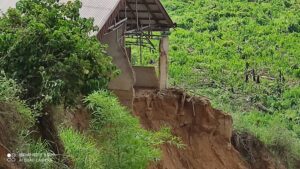
Akpera particularly said ‘In 2017, some team of engineers visited our communities with the view to gathering information that will aid them prepare designs for the stated sites. This exercise was done successfully in our communities and designs produced. After the production of the designs, we started having series of engagement with the Cross River State Nigeria Erosion and Watershed Project until sometime in January, 2021, when we were informed that the World Bank has approved the designs for civil works to commence. We were heavily assured that the works shall commence soon.
‘While waiting and hoping for the works to commence in earnest, we now have it on good authority that the World Bank for reasons that we are yet to come to terms with, directed the Cross River State Nigeria Erosion and Watershed Management to stop planned commencement of civil works at our communities and return the money back to the World Bank so that the money meant for our erosion sites can be redeployed other states in Nigeria.
‘This decision of the World Bank is not only unjust, inequitable and unfair, it would amount to robbing Paul to pay Peter, considering the very devastating states of our erosions sites which requires urgent intervention. We wonder why this decision was taken by the World Bank without taking into consideration our very peculiar plight’, she observed.
On his part, Mr Alex Effiom Eyo the youth leader of the Akai Efa Community disclosed that ‘It has not been easy anymore. The school buildings, the farm lands of women whose livelihood revolve around vegetable planting, is gone. It is a very terrible situation. Alot of remediation works here is a product community effort, we have never had government support. We are pleading with the federal government to come to our aide, we are ready to contribute our part should they come’.
An affected resident, Mr Eno Ekapong, disclosed that the cause of the gully erosion is artificial particularly in Akai Efa: Ekapong revealed that it is traceable to the poor road repair construction work empanelled by the Niger Delta Development Commission (NDDC) at Edem Ekpo Crescent in 2019 through the entity, Dosmark Engineering Ltd who failed to site its drainage accordingly.
His words, ‘NDDC constructed the other road not this (referring to the road constructed immediately after Edem Ekpo Crescent), they crossed the road, they would have the channeled water but, they didn’t. Now, the whole volume of water is domiciled here’. Ekapong said that he has spent over N13 million for his house to still be standing.
It is alleged that the reason the World Bank is pulling out its funds from the NEWMAP in Cross River to other states is because the state government is yet to pay its counterpart funds. However, speaking with the Senior Special Assistant to the Governor of Cross River state on NEWMAP in Calabar, Mr Francis Agaba, he explained that it is not the case that the state government is yet to pay counterpart funds, he noted that the NEWMAP is winding off its activities around NEWMAP rather. He asserted that the state has given its part of the fund. But when NEGROIDHAVEN pushed further for how much the state has paid, he denied knowledge of the exact amount: ‘Cross River State through Gov Ben Ayade has remitted its counterpart funds for NEWMAP’. He assured the affected communities of intervening on their behalf with the World Bank in respect of NEWMAP.
Nigeria Erosion and Watershed Management Project is a project financed by the World Bank. The core mandate of the project is to restore degraded lands by way of civil works and bioremediation.





